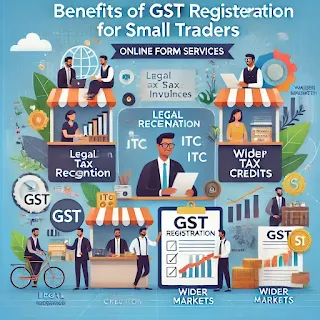
Diwali Digital Fraud and Scams in India - Complete Guide After Diwali Scams 2024
Diwali Digital Fraud and Scams in India:
Essential Diwali Online Shopping Safety Tips: Avoid Scams and Shop Securely on E-Commerce Platforms
The festive season in India, especially during Diwali, is one of the busiest times of the year for online shopping and gift-giving. Unfortunately, this is also when digital fraud and scams see a significant rise, as scammers exploit the enthusiasm and high spending that come with the celebrations. Here's an overview of the types of Diwali scams to look out for, how scammers operate, and what you can do to keep your information and finances safe. Online Form Services provide legal solution and advise.
1. Types of Common Diwali Scams
During Diwali, there are several types of scams that can target unsuspecting shoppers. Here are some of the most common:
Phishing Scams: These scams involve fake emails or websites that mimic popular e-commerce platforms. They promise attractive Diwali discounts but are designed to capture personal information.
Fake E-commerce Sites: Some scammers create fake websites specifically for the Diwali season, using them to sell goods that either don't exist or are of inferior quality.
Gift Card Frauds: You may see ads or messages offering “free” or heavily discounted gift cards as Diwali presents. Scammers use these schemes to obtain your personal and financial information.
WhatsApp and SMS Scams: Fraudulent messages and links sent via WhatsApp or SMS often promise “exclusive” Diwali deals or prizes. Clicking these links can lead to malicious sites or unauthorized downloads.
UPI and QR Code Frauds: As UPI payments gain popularity, scammers may send fraudulent QR codes or payment requests masked as Diwali offers, tricking victims into sending money instead of receiving it.
2. How Fraudsters Exploit Diwali Sentiments (Stay safe this Diwali with online shopping tips to avoid scams)
Scammers use emotional and cultural connections associated with Diwali to make their frauds seem credible. They tap into the spirit of gifting and celebration, using messages that resonate with feelings of family bonding and festive joy. By creating a sense of urgency with “limited-time offers” and flash sales, they lure people into making hasty decisions. These scams are often disguised to look like well-known brands and retailers, making it harder for people to identify their authenticity.
3. Red Flags to Watch for During Diwali Shopping
While browsing or shopping online, look out for these warning signs to help avoid scams:
Unrealistic Discounts: Deals that seem too good to be true often are. Be cautious of sites or messages promising heavily discounted or “free” items.
Poor Website Quality: Fake e-commerce sites often have poor design quality, spelling mistakes, or mismatched product descriptions. These details can be a red flag.
Requests for Sensitive Information: Real e-commerce platforms won’t ask for OTPs, passwords, or bank account details unnecessarily. Be wary of any unsolicited requests.
Unsolicited Messages and Calls: Be cautious if you receive calls or messages from unknown sources asking for payment, personal data, or account verification.
4. Government and Platform Initiatives for Consumer Safety
To help curb Diwali-related scams, the government and various e-commerce platforms are actively working on fraud prevention initiatives:
Cybercrime Helplines: India’s cybercrime cell has dedicated resources to report online fraud, making it easier for victims to get assistance.
E-commerce Site Verification: Trusted platforms like Amazon and Flipkart work to verify sellers and listings to prevent fake or fraudulent items from being sold.
Reporting Portals: Several digital reporting tools and helplines allow users to report suspected scams quickly, helping authorities to track and address these incidents.
Online Form Services: we are actively providing the services to ensure the safety and proper guidance through available ambit to get effective solution for fraud and scam.
5. Tips for Safe Online Shopping During Diwali
Staying safe while shopping online this Diwali is all about being aware and taking a few extra precautions:
Use Trusted Websites or Verified Apps: Only shop from well-known websites or apps with verified vendor credentials.
Double-Check URLs and Payment Gateways: Ensure you’re on the official site before entering any payment information, especially on unfamiliar links or advertisements.
Avoid Unverified Links: Do not click on links sent by unknown contacts on WhatsApp or SMS, as these can lead to scam sites.
Report Suspected Scams: If you come across any fraudulent sites or messages, report them to cybercrime portals to help prevent others from falling victim.
By staying vigilant and knowing how to identify potential scams, you can enjoy a safe and joyous Diwali shopping experience. Remember, a little caution can go a long way in protecting your personal and financial information from digital fraudsters.
CONTACT US Online Form Services for legal advice and fraud concern.
CALL NOW 9431344961

































